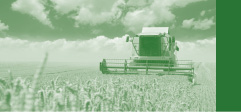Help localities adopt zoning codes that support agricultural tourism
Action
Farms, orchards, wineries, greenhouses, hunting preserves, and animal or livestock shows are becoming increasingly popular destinations for recreation and education. Agricultural tourism supports working farms by providing farmers with an additional source of revenue.
Local zoning codes can be an impediment for farmers who want to expand their operations to include agri-tourism. In many localities, farmers are required to obtain variances or special-use permits before they can offer agri-tourism. Just applying for a permit can be time-consuming and costly enough to discourage the effort. States can help by supporting efforts by local governments to zoning codes that are friendly to agri-tourism.
Process
Departments of agriculture can assist interested localities by helping to review their codes and in drafting changes to permit agri-tourism where appropriate. Departments also can choose to take a more proactive role by crafting model language supporting agri-tourism that local governments can insert in existing codes. The Farmland Information Library includes an online compilation of tourism-friendly codes.
Because it is important to make sure the code is permitted under state zoning law, the Department of Agriculture should work with the state planning agency in developing a model code. The Department should also ask for input from farmers, small business owners, business organizations, municipal officials and other stakeholders.
Another way departments can support agri-tourism is by responding directly to requests from farmers who are interested in expanding their operations but are limited from doing so because of local zoning. In this instance, the department should work with farmers on a case-by-case basis to review local requirements and to propose changes.
Examples
- Michigan's Model Zoning Ordinance for Agricultural Tourism
In 2007, the Michigan Agricultural Tourism Advisory Commission developed a model ordinance to assist local governments that wish to adopt zoning practices to support agri-tourism. The ordinance also discusses the benefits of agri-tourism and its impact on the Michigan economy.
— Michigan's Agricultural Tourism Advisory Commission


